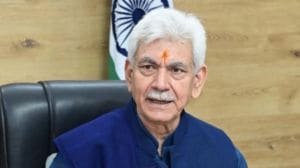DPC may turn NPA even as plant could come on
Even as the country’s financial institutions (FIs) and the Maharashtra State Electricity Board (MSEB) have nearly reached a consensus o...

Even as the country’s financial institutions (FIs) and the Maharashtra State Electricity Board (MSEB) have nearly reached a consensus on restarting the Dabhol power plant (the Maharashtra Cabinet will approve the deal in a week), the FIs have approached the Reserve Bank of India to prevent their Dabhol loan from being declared a non-preforming asset (NPA)—Dabhol has not paid its dues for over 80 days now. They have asked the RBI to treat Dabhol as a special case as the plant will soon be generating power, and so will be able to make its payments.
Sources in the union power ministry said the plant should start operations in around a month’s time—after the Maharashtra Cabinet approves the deal, a fresh petition will have to be filed before the regulatory commission in the state. The biggest sticking point on the project’s restarting has been the price at which MSEB will buy the power—while MSEB is unwilling to pay more than Rs 2.25 per unit of power, the FIs want a minimum price of Rs 2.75. With this price, they feel, Dabhol can be treated as a standard asset— anything below, and it’ll have to be treated as an NPA.
Under the final settlement that has been hammered out, the union finance ministry will exempt the naphtha supplies to Dabhol from excise duty and the state government will not charge any sales tax. Once this happens, the fuel cost portion of Dabhol’s tariff will work out to Rs 2.12 per unit of power produced—had the exemptions not been granted, this would have been Rs 2.3. After adding 25 paise per unit for operations, and around 35-40 paise for interest repayment, a minimum cost of Rs 2.75 per unit has been arrived at. Sources say MSEB has agreed to this. No provisions have been made for either depreciation or return on equity. If the deal goes through, MSEB will buy 75 per cent of Dabhol’s power generation.
The biggest roadblock in the deal, sources say, was the sharp rise in prices of naphtha, the fuel sources for the plant. When Dabhol was first conceived, naphtha prices were Rs 6,500 per tonne, and today they are Rs 14,500 per tonne. Immediately, this ensured the price of power generation has gone up dramatically.
Sources say ICICI Bank has already done a fair valuation of its exposure in the first phase of the DPC project and made provisions accordingly. “We don’t have much exposure in the first phase. But our exposure is higher in the second phase,” ICICI sources said. If DPC doesn’t pay up in the next two months and the RBI refuses to treat DPC as a special case, another Rs 6,200 crore will be added to the NPAs in the banking system.
IDBI has an exposure of Rs 2,121 crore, ICICI Rs 1,473 crore, State Bank of India Rs 1,749 crore, IFCI Rs 454 crore and Canara Bank Rs 407 crore.
DPC has missed its first loan repayment due on April one and since then has not met its second obligation for the quarter ended June 30. With this, the official said, as per RBI rules, DPC is technically a sub-standard asset and the banks and FIs will have to make provisions for 10 per cent of principal outstanding every year.






- 01
- 02
- 03
- 04
- 05

























